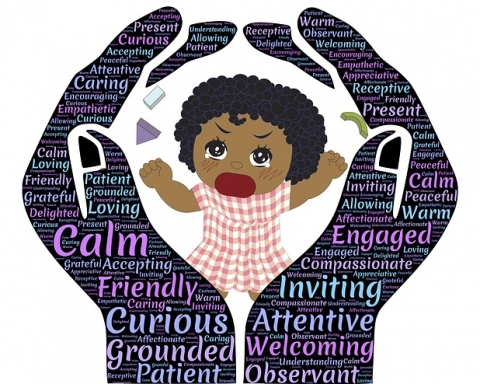Authoritarian parenting is a type of parenting characterized by high demands and very little nurturing from the parents to their children. The parents’ responsiveness to their children’s needs is often low and marred by negativity.
Communication in authoritarian parenting is usually strained. Authoritarian parents scold more and often yell at their children. The parents’ input always take precedence. The rules are draconian and have no rational foundation. The children nevertheless have to adhere to whatever is expected of them. Corporal punishment is the main way of correcting the children’s behavior.
Adolescents whose parents are characterized as authoritarian score reasonably well on measures indexing obedience and conformity to the standards of adults but have relatively poorer self‐conceptions than other youngsters. —Researchers at the University of Wisconsin
Authoritarian parenting is very much focused on controlling the children’s lives rather than imparting self-control. The children have little or no say in anything because the parents’ culture is the sole benchmark. The parents don’t believe that their children are capable of being well-behaved if left on their own, so the parents apply strict, harsh discipline.
Read more related articles on this website:
- What Is Authoritative Parenting?
- What Is Helicopter Parenting?
- What Is Free-Range Parenting?
- What Is Parallel Parenting?
- What Is Gender Neutral Parenting?
- What Is Attachment Parenting?
- Which Type of Parenting Is Most Effective in Adolescence?
Authoritarian Parenting Tactics
Different parents have various ways of practicing authoritarian methods. The results are based on the pressure they exert.
- Authoritarian parents have little patience when it comes to their children’s behavior and often do not explain why they are taking certain corrective actions.
- Authoritarian parents expect their children to conform even without due guidance. Good behavior is never complimented. The only feedback that children can expect to get is punishment, scolding, and yelling.
- The parents sometimes shame their children in public. Authoritarian parents believe that shaming their children instills good behavior.
- Eye contact is another way authoritarian parents control their children, especially in public places where they cannot yell. Stern facial expressions are enough to make their children retract from bad behaviors.
- In authoritarian parenting, the children have no leeway to make their own choices. The parents do not trust them to make dependable decisions. It is common to see authoritarian parents choosing schools and even careers for their children.
- Authoritarian parents also want to control their children’s friendships and are often critical of any friend that they see as a threat to their children’s upbringing. Authoritarian parents even attempt to control whom their children choose to marry.
The Long-Term Negative Effects of Authoritarian Parenting
Authoritarian parenting is marked by absolute obedience to set rules. Though the children’s obedience may be good to a certain extent, it has the potential of depriving children of their independence, self-esteem, and self-control.
Critics argue that while authoritarian parenting may shape children to be law-abiding citizens, it is too draconian to nurture independent, well-rounded individuals.
One study’s findings observed, “Maternal authoritarian attitudes independently predicted the development of conduct problems 5 years later at age 10 … authoritarian parenting attitudes expressed by mothers may be of significance in the development of conduct problems.”
The costs of authoritarian parenting are worth underscoring. Parents are advised to always examine their parenting styles. If they are being overbearing, they should consider making some changes to their own behavior and expectations.

References
- Lamborn, Susie D., Nina S. Mounts, Laurence Steinberg, and Sanford M. Dornbusch. “Patterns of Competence and Adjustment among Adolescents from Authoritative, Authoritarian, Indulgent, and Neglectful Families.” Child Development 62, no. 5 (1991): 1049–1065. Retrieved from https://onlinelibrary.wiley.com
- Thompson, Anne, Chris Hollis, and David Richards. “Authoritarian Parenting Attitudes as a Risk for Conduct Problems.” European Child & Adolescent Psychiatry 12, no. 2 (2003): 84–91. Retrieved from https://link.springer.com











![I, Greg Williams [GFDL (http://www.gnu.org/copyleft/fdl.html) or CC BY-SA 3.0 (https://creativecommons.org/licenses/by-sa/3.0)], from Wikimedia Commons](https://parentingscience.today/wp-content/uploads/2018/05/Helicopter_Parenting_Father-480x384.png)

